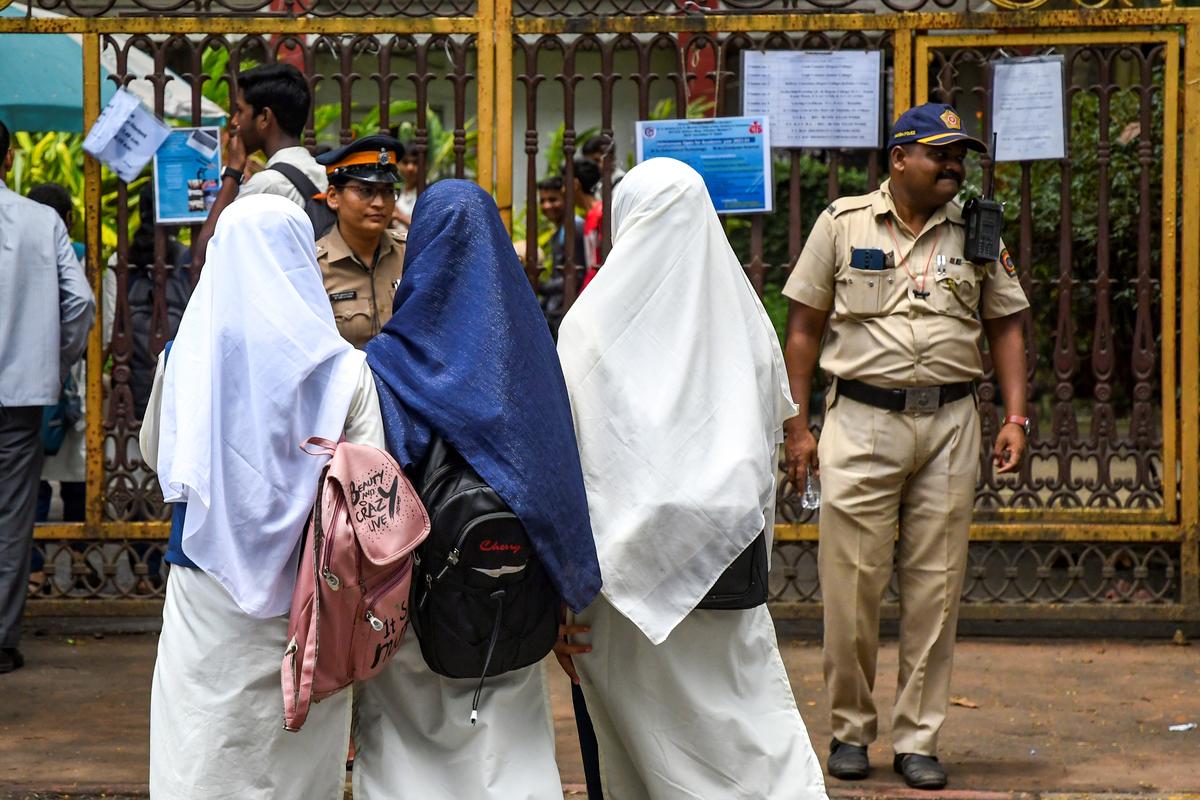The Bombay High Court recently heard a writ petition filed by nine students of NG Acharya and DK Marathe College, challenging the institution’s ban on wearing hijab, niqab and burkha. The case was presented before a division bench comprising Justice AS Chandurkar and Justice Rajesh Patil.
Petitioners’ arguments
Advocate Altaf Khan, representing the students, argued that the ban was imposed without any legal authority, communicated merely through a WhatsApp message stating that decent and formal dress should be worn, explicitly prohibiting niqab, hijab, stole, and caps. He highlighted that the message allowed a relaxation on Thursdays, indicating inconsistency and lack of formal policy.
Khan emphasized that the students had been wearing the hijab and niqab without issue for the past two years, making the sudden imposition of the ban disruptive and arbitrary. He referenced the Karnataka High Court’s judgment on a similar issue, pointing out the differences; in Karnataka, a pre-existing uniform policy was reinforced, whereas, in this case, no such uniform policy existed and that the college just had a dress code, which was abruptly changed.
Khan contended that the instructions violated the students’ fundamental rights under Articles 19 and 21 of the Indian Constitution, which protect the right to personal choice and privacy. He argued that the college’s directive impeded access to education, particularly for marginalized communities such as SC, ST, OBC, and Muslims, contravening various educational guidelines aimed at increasing their access to higher education. A detailed analysis of the Karnataka hijab ban can be read at CJP.
College management’s defence
Senior Advocate Anil Anturkar, representing the college management, asserted that the WhatsApp group through which the message was disseminated was not officially created by the management but by teachers and students. He downplayed the policy’s formal status, suggesting it was not an official directive from the college authorities.
Anturkar argued that the college’s stance was not discriminatory and applied to all students to maintain a secular environment by avoiding the display of religious symbols unless they were essential to the practice of the religion. He asked the petitioners to provide judicial precedents affirming the hijab as an essential practice of Islam.
Anturkar further stated that the priority should be on education rather than religious attire, asserting that the college had provided changing rooms to accommodate the students’ needs while maintaining a non-religious environment on campus. He cautioned the court against entertaining the petition, suggesting it could set a problematic precedent.
Another advocate for the university highlighted that unlike the Karnataka case, where a government order was challenged, the petition did not sufficiently demonstrate how the college acted as an instrument of the state, thus questioning the legitimacy of the writ petition.
Conclusion
The court has reserved the plea for an order, which is scheduled to be pronounced on June 26, 2024. The decision will have significant implications for the balance between institutional policies and individual rights to religious expression in educational settings.
Related:
Nine Muslim students petition Bombay HC, college’s ban on hijab violates fundamental rights
Does the State have the right to disrupt Muslim woman’s right to education?
Educational inequities worsen for Muslim students in India
Parents and students protest in Gujarat after girls asked to remove hijab before board exam
Removing Hijab ban is a step forward, for gender justice & pluralism
